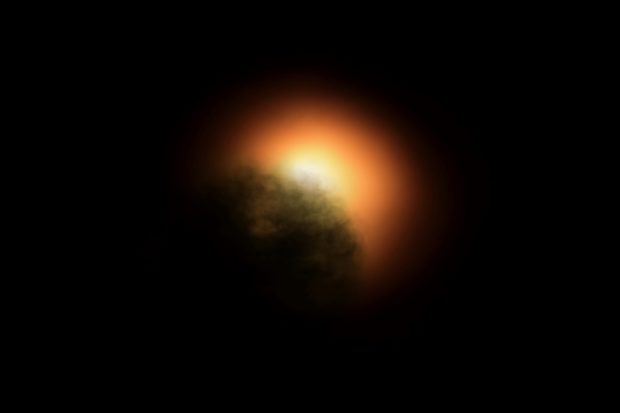Dimming of one of galaxy’s brightest stars ’caused by dust cloud’

Betelgeuse. Image: courtesy of European Space Agency/M. Kornmesser via AFP
The sudden dimming of one of the Milky Way’s brightest stars, Betelgeuse, could be due to a dust cloud spewing up from its surface, astronomers said on Thursday.
The mystery has enthralled skywatchers since the star – part of the Orion constellation – began to lose luminosity last October, with some experts suggesting it could herald its explosion into a supernova.
But researchers working with the Hubble telescope now have a clearer picture, seeing superhot plasma being unleashed from the star’s surface, cooling in the outer layers of the atmosphere and eventually turning to dust.
“The resulting cloud blocked light from about a quarter of the star’s surface,” the European Space Agency said in a statement, adding that the star has since returned to its normal brightness.
“With Hubble, we see the material as it left the star’s visible surface and moved out through the atmosphere, before the dust formed that caused the star to appear to dim,” said lead researcher Andrea Dupree of the Harvard-Smithsonian Center for Astrophysics in the United States.
“We could see the effect of a dense, hot region in the southeast part of the star moving outward,” she said.
The researchers, due to publish their findings in The Astrophysical Journal, said they were not sure of the ultimate cause of the plasma eruption.
Betelgeuse, almost 1,000 times the size of the Sun, is 725 light-years from Earth, meaning the event witnessed by the telescope happened around the beginning of the 14th century. IB
RELATED STORIES:
Mankind’s giant leap, 5 decades later: NASA marks 51st anniversary of historic moon landing
LOOK: NASA marks 5th year since historic Pluto flyby with love letter